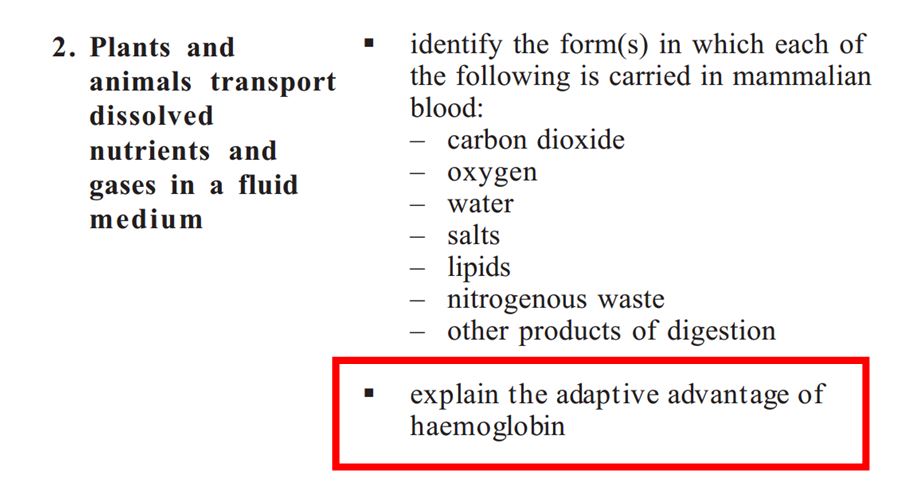I don’t know about you, but when I was preparing for my final HSC Biology exams way back in the dinosaur age, my biggest concern was running out of practice questions.
If I didn’t have practice questions, I wouldn’t be able to revise my knowledge, and so I wouldn’t be able to prepare fully for my exams, and so I would not perform at my best.
So after spending some time freaking out about this, I decided to take matters into my own hands.
Here are a few reasons to convince you of the value of writing your own questions for HSC Biology:
1. You will never run out of questions!
2. There are a limited number of HSC Biology Past Papers but if you write your own questions, you will be able to save the HSC Biology Past Papers for closer to the exam date!
3. You can have an unlimited number of questions on the topics that you struggle with.
4. You can practice the first few steps of answering questions effectively: breaking down a question to its syllabus-related parts to make sure that you address all parts of the questions. You can’t do this without having tonnes of new practice questions at your disposal
So, there are a few steps to writing your own questions. But first, have a look at this question that I prepared earlier:
What is the adaptive advantage of haemoglobin?
And let me strategically direct you to a snip of the syllabus:
You may have noticed that the question is exactly the same!
This was taken from the 2012 past paper. Don’t believe me? Click here.
…WOW.
So this shows you that if you take a syllabus dot point, and turn it into a question, and change the question around to make even more questions, you will be more than prepared for any question that comes up in the exams.
So, here are the steps that I took:
Step 1: Get yourself a syllabus
The HSC Syllabus is no more than a list of all the things that you are expected to know for Biology.
From this, it makes perfect sense that your starting point for writing questions which will be based on the content you need to know is the syllabus itself.
Step 2: Change it up
If you were paying attention earlier, you would have noticed that the question which I wrote about the adaptive advantage of haemoglobin was taken directly from the syllabus dot point about the adaptive advantage of haemoglobin.
This is an example of the most basic way to write your own questions: take a dot point from the syllabus and change up the order of the words to make it into a question.
Here is another example that I prepared earlier:
What is the relationship between the use of reproductive technologies and Darwin’s theory of evolution by natural selection?
This question addresses this syllabus dot point:

You could take this very same example and substitute in a different theory of evolution, or even ask for a specific reproductive technology rather than leave it open as I have.
From this, you already have at least three possible questions which will all need to be answered in different ways.
Step 3: Get your verbs in order
Another cool trick that you can use to make plenty of questions for yourself is by using the HSC Verbs.
You can change up the verb at the beginning of each question to make questions with different levels of difficulty, and also to give yourself more chances at practicing the verbs that you find most challenging.
For example:
1. Outline the contributions of Mendel, Sutton and Boveri to our understanding of inheritance.
This would probably be a 3 mark question, where you are only required to list the contributions of each of the scientists.
You can change the verb in this question to become:
2. Evaluate the contributions of Mendel, Sutton and Boveri to our understanding of inheritance.
This question is more of a 6 mark question where you are asked to say whether the contributions of each scientist was significant or not.
Or even:
3. Justify the contributions of Mendel, Sutton and Boveri to our understanding of inheritance.
This is going to be a whopping 8 mark question where you will be asked to provide the backing evidence for each of the scientists’ research.
Step 4: Use your flashy vocab!
It is important to remind yourself continuously to use the correct vocabulary of Biology because it ensures that you are speaking the correct language.
I used to keep a running glossary of all of the new words that I came across throughout the year and what they meant so that I could always refer to them if I couldn’t find the specific word that I needed.
To make your life a little bit easier, I’ve pieced some of the keywords in each of the core topics together into these handy little tables for you.
So as you can see, it isn’t all that difficult to make your own practice questions for HSC Biology.
The most significant benefit of taking the time to make and answer extra practice questions is that you will have had that much more practice than your peers at answering the exam questions.
Even more importantly, this allows you to power on ahead in your study.
Once you have finished a topic (or even a dot point) in class, you can go home and write and answer a few practice questions in your study time in addition to writing your notes.
This will make your study time more effective and you will have already been exposed to practice questions while your peers are still stuck on making their notes!
Remember to incorporate this step into your Biology Study Plan!
Looking for extra help with HSC Biology?
We pride ourselves on our inspirational HSC Biology coaches and mentors!
We offer tutoring and mentoring for Years K-12 in a variety of subjects, with personalised lessons conducted one-on-one in your home or at our state of the art campus in Hornsby!
To find out more and get started with an inspirational tutor and mentor get in touch today!
Give us a ring on 1300 267 888, email us at [email protected] or check us out on Facebook!
Gia-Yen Luong has been an Art of Smart coach for 3 years, coaching a range of subjects including HSC English, Legal Studies, Biology, Chemistry and General Maths. She is in her final year of a mega double degree in Law/Science (Neuroscience). She graduated high school with an ATAR of 99.9 and spends most of her time trying to convince people that it’s wholly possible to get such a mark while still having a normal life during YR 12. She enjoys reading, podcasts and truly believes that she was born to be a blogger.





